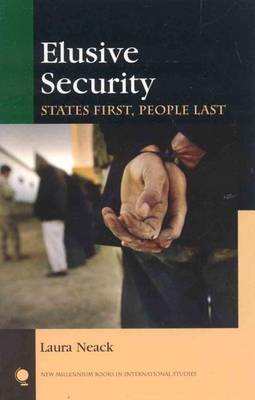This clear and concise text offers a comprehensive comparison of national, international, and human security concepts and policies. Laura Neack argues that security remains elusive because of a centuries-old ethic insisting that states are the primary and most important international actors, can rely ultimately only on themselves for protection, and must keep all options on the table for national security. The author compellingly demonstrates how a state-first security ethic ultimately fails to secure states, the international community and-most important-human beings.
Although security as a concept can be widened to include almost any aspect of existence, Neack focuses especially on security from physical violence, beginning with efforts by states to defend themselves against violent attack. She explores such topics as the internal and external dimensions of security, terrorism, and defending the homeland; threat perception and responses; preemptive and preventive wars; and other military interventions. Next, Neack examines efforts over the past century to protect states through the construction of the United Nations international security system and how collective security, peacekeeping, and peace enforcement have been used in that system. Throughout, Neack shows that human security has only mattered in terms of servicing the state's security needs, a critique she takes up directly in the final chapters. A range of short and extended case studies are offered to illustrate the conceptual materials and policy debates over security. In this state-first world, we only can choose between degrees of insecurity; true security remains elusive.
- ISBN10 074257802X
- ISBN13 9780742578029
- Publish Date 27 October 2006 (first published 1 January 2006)
- Publish Status Active
- Publish Country US
- Publisher Rowman & Littlefield
- Imprint Rowman & Littlefield Publishers
- Format eBook
- Pages 278
- Language English
